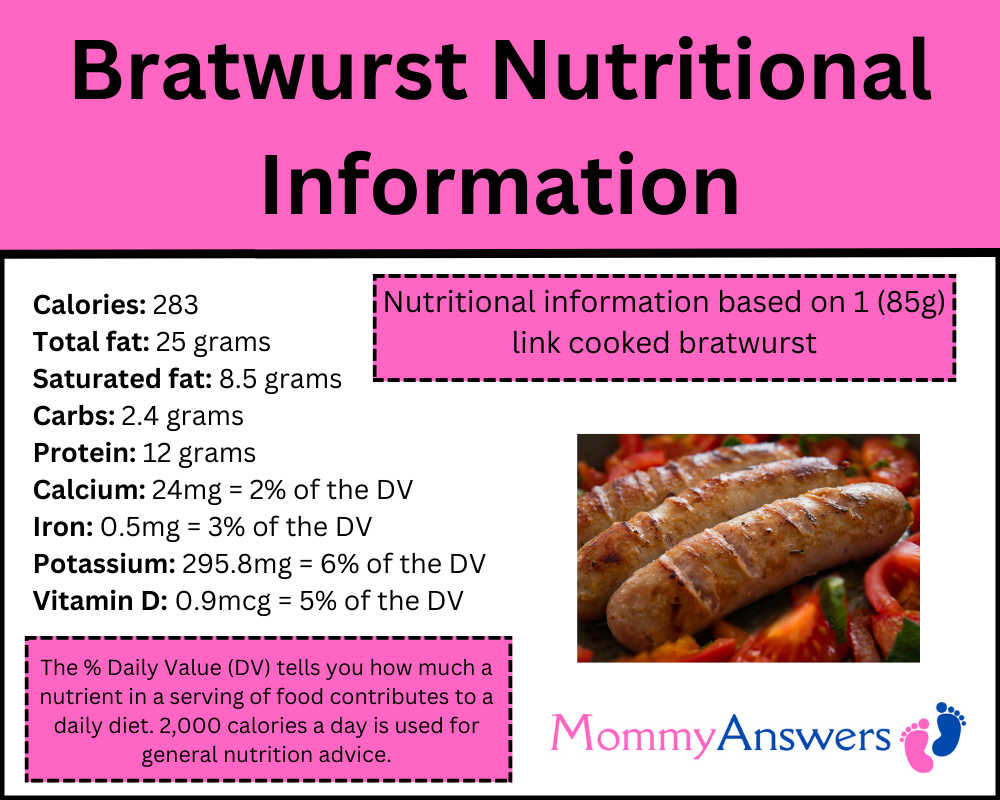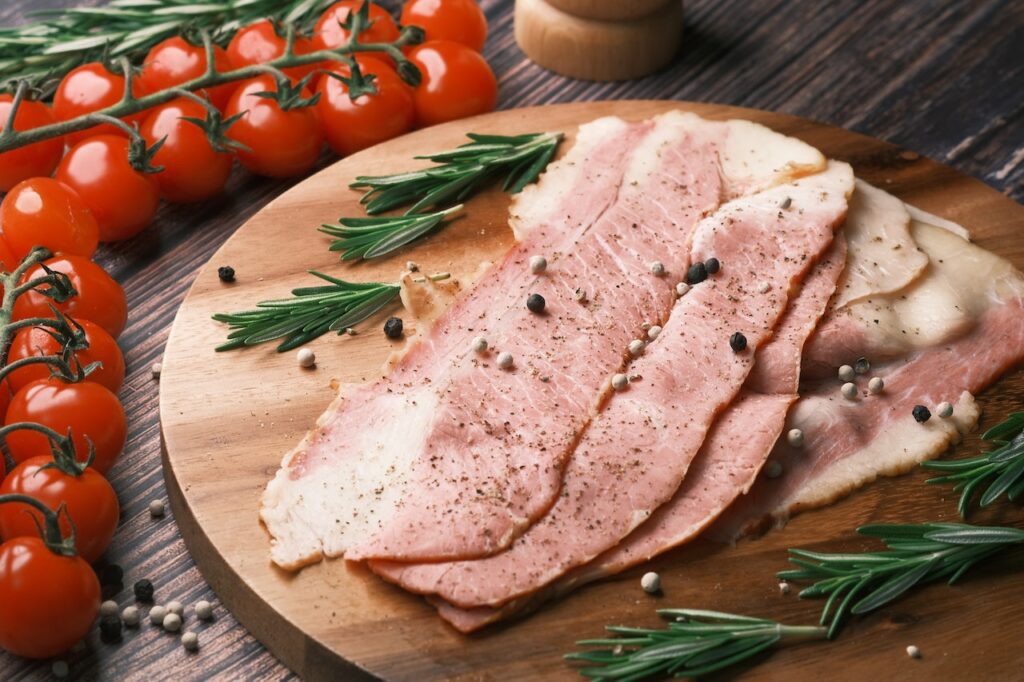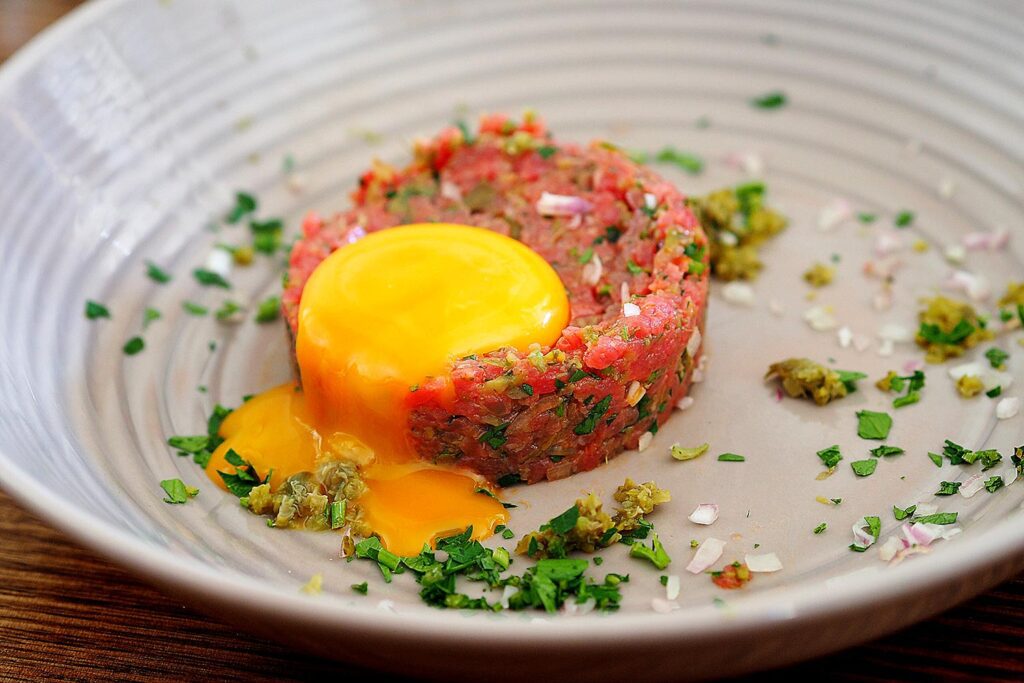During pregnancy, numerous dietary concerns and questions emerge. You might wonder, “Can you eat brats while pregnant?” This article aims to address that question and discuss related topics, including what brats are made of, their nutritional aspects, and how to prepare them safely.
What are brats made of?
Bratwurst, commonly known as brats, is a variety of German sausage comprised of a blend of ground meat (typically pork, beef, or veal), seasonings, and herbs. The specific ingredients and flavors may differ based on the recipe, region, and individual preferences. Traditional bratwurst is generally encased in a natural casing derived from animal intestines, while some contemporary versions employ synthetic casings.
Are brats unhealthy?
As with any food, consuming brats as part of a balanced diet is acceptable if done in moderation. However, they tend to be high in fat, sodium, and cholesterol, which can be harmful if consumed excessively. To make brats a healthier choice, consider opting for leaner meat alternatives or recipes with reduced fat and sodium content. Additionally, it’s crucial to cook brats thoroughly to minimize the risk of foodborne illnesses.


Is it safe to eat cooked brats during pregnancy?
Pregnant women can consume cooked brats, provided they are prepared thoroughly to a safe internal temperature of 160°F (71°C) to eliminate any potential bacteria. It’s essential to make sure the meat is evenly cooked and contains no pink or undercooked sections. Utilizing a meat thermometer can help confirm that the brats are cooked to a safe temperature.
How long should you boil brats?
Boiling brats is one method to ensure they are cooked thoroughly since it distributes heat evenly. To boil brats:
- Place the brats in a large pot and submerge them in water or a combination of water and beer (for added flavor).
- Bring the liquid to a boil, then lower the heat to maintain a simmer.
- Allow the brats to simmer for 15-20 minutes, or until they achieve an internal temperature of 160°F (71°C).
After boiling, you may also finish cooking the brats on a grill or stovetop for a crispy, browned exterior.


Why should you avoid hot dogs during pregnancy?
Hot dogs and other processed meats, such as deli meats and sausages, can pose a risk to pregnant women due to the potential presence of Listeria bacteria. Listeria can cause a severe infection called listeriosis, which may result in miscarriage, stillbirth, or serious illness in newborns. Pregnant women are more vulnerable to listeriosis due to changes in their immune systems.
To minimize the risk of listeriosis, hot dogs and other processed meats should be cooked to a minimum internal temperature of 165°F (74°C) before eating.
Are sausages safe to eat during pregnancy?
Sausages, including brats, can be safely consumed during pregnancy as long as they are cooked thoroughly. Always ensure that sausages reach an internal temperature of 160°F (71°C) and show no signs of pink or undercooked meat. Furthermore, proper food handling and storage practices are essential to reduce the risk of foodborne illnesses.


What sandwich meat can you not eat while pregnant?
The primary concern with sandwich meats during pregnancy is the potential presence of harmful bacteria, such as Listeria monocytogenes. This bacterium can cause listeriosis, a severe infection that may lead to miscarriage, stillbirth, or severe illness in newborns. Pregnant women are more susceptible to listeriosis due to changes in their immune systems.
Listeria is a robust bacterium that can thrive in cold temperatures, making deli meats and refrigerated sandwich meats particularly risky. To minimize the risk, pregnant women should avoid consuming the following sandwich meats:
Cold Cuts and Deli Meats
Cold cuts, including sliced turkey, ham, roast beef, and salami, are popular sandwich ingredients. However, these deli meats can harbor Listeria, making them unsafe for pregnant women to consume unless heated to a safe temperature.


Hot Dogs and Sausages
Hot dogs and sausages can also be contaminated with Listeria, so it’s essential to cook them thoroughly before eating. If you’re pregnant and craving a hot dog, make sure it is cooked to an internal temperature of 165°F (74°C).
Raw or Undercooked Meats
Raw or undercooked meats, such as steak tartare or carpaccio, should be avoided during pregnancy. These meats can contain harmful bacteria like E. coli, Salmonella, or Listeria, posing a significant risk to both the mother and her unborn child.


Liver and Liver-based Products
While liver can be a rich source of nutrients, it also contains high levels of vitamin A. This vitamin can be harmful to an unborn baby if consumed in large amounts. Pregnant women should avoid liver-based products, such as liverwurst and pâté, to prevent excessive vitamin A intake.
Safe Alternatives and Precautions
Though certain sandwich meats should be avoided during pregnancy, there are still plenty of delicious and safe alternatives to satisfy your cravings. Here are some tips to help you enjoy sandwiches without compromising your health:
- Heat it up: If you’re craving deli meat, heat it to steaming hot (165°F or 74°C) to kill any potential Listeria bacteria. You can then safely add the meat to your sandwich and enjoy it warm or wait for it to cool down.
- Opt for canned or shelf-stable meats: Canned meats, such as chicken or tuna, and shelf-stable meats like pepperoni or salami, are generally considered safe for pregnant women since the canning process kills harmful bacteria.
- Choose cooked meats: Freshly cooked meats, like grilled chicken or sliced roast beef, are a safer alternative to deli meats. Just make sure they are cooked thoroughly and consumed while still hot.
- Go meatless: Pregnant women can also opt for meatless sandwich options, such as cheese, hummus, or avocado, combined with plenty of fresh veggies for a nutritious and satisfying meal.
- Practice proper food handling: Regardless of the sandwich ingredients you choose, always practice good food hygiene. Wash your hands before and after handling food, use separate cutting boards for raw and cooked meats, and store perishable foods at the proper temperature.


Conclusion
To sum up, expecting mothers can consume brats if they are properly cooked to a safe internal temperature of 160°F (71°C) to ensure the elimination of any potential bacteria. Although brats might not be the most nutritious choice due to their high levels of fat, sodium, and cholesterol, they can still be consumed occasionally as part of a well-rounded diet.
When it comes to food choices during pregnancy, it’s essential to exercise good food handling and storage practices to reduce the likelihood of foodborne illnesses. By being cautious and making well-informed decisions about your diet, you can enjoy a healthy pregnancy while treating yourself to a tasty bratwurst from time to time.

